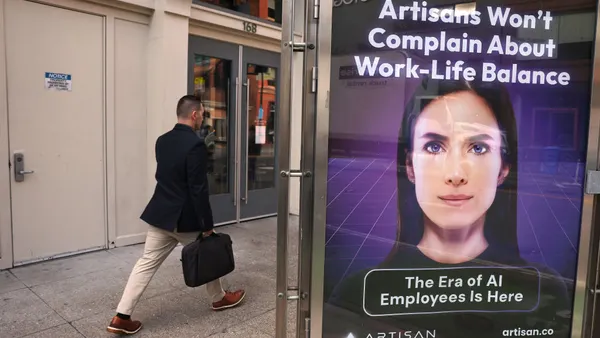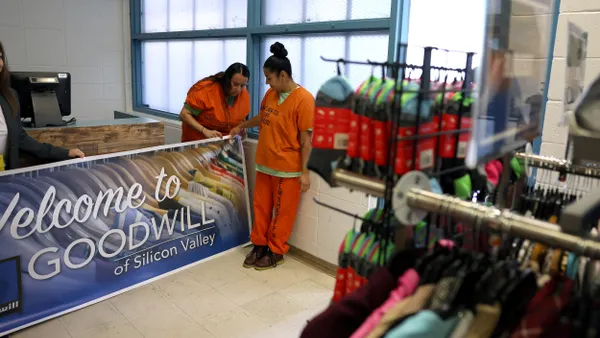Dive Brief:
- Most HR professionals (95%) agree that predictive analytics would aid their hiring and development efforts, but only a third have access to the technology, according to a survey by OutMatch, a predictive analytics firm. The survey collected responses from 176 HR professionals representing 30 industries across the U.S.
- Survey results also found that among the companies investing in data-based HR technology, 46% are using it to make better employee selections, and 17% are looking to reduce turnover. Almost 60% of the respondents said their organizations had average turnover rates of up to 20%, and a quarter of the organizations had turnover rates of up to 50%.
- On HR as a strategic partner, 91% of respondents said their organization considered the profession critical to its success and profitability.
Dive Insight:
Marketing professionals have long been the traditional users of data to promote goods, assess market shares, parse demographic information and measure sales results. With technological advances, other disciplines, like HR, are using data-driven analytics to measure outcomes in their fields.
A 2016 white paper from XpertHR discussed a growing need for predictive analytics in measuring workplace outcomes. At the time, a Deloitte survey found that only 4% of respondents were investing in big data. This statistic alone exemplifies the growth in adoption of predictive analytics in just a year.
The use cases of analytics for HR vary widely — from correcting organizational pay inequities to recruiting strategy — but they are here nonetheless, impacting HR even in their infancy. HR pros who can identify, vet and execute successful analytics strategies tailored to their organization's needs will be in high demand for the foreseeable future. Part of that success will include persuading the C-suite that people analytics are worth the investment.











